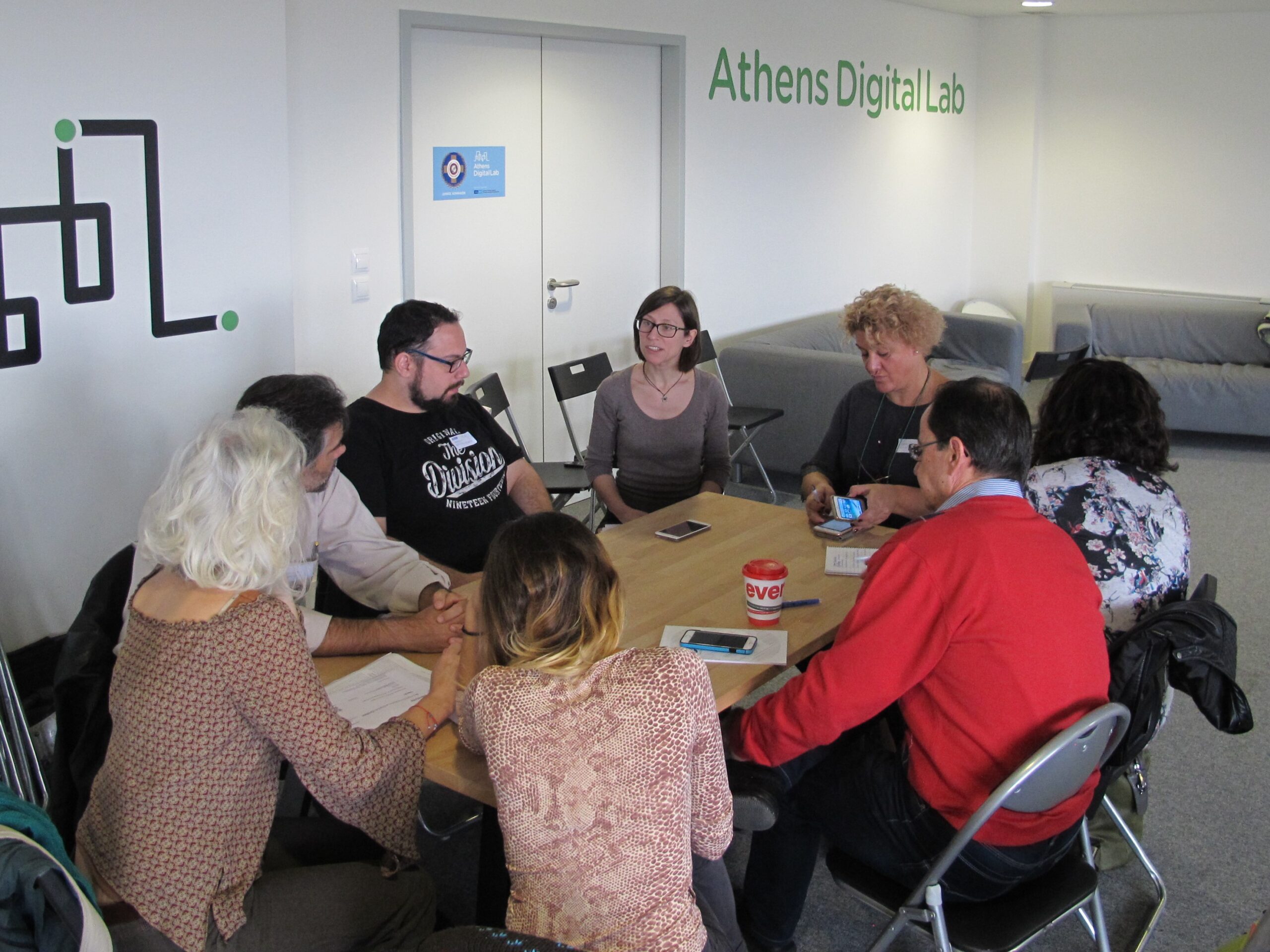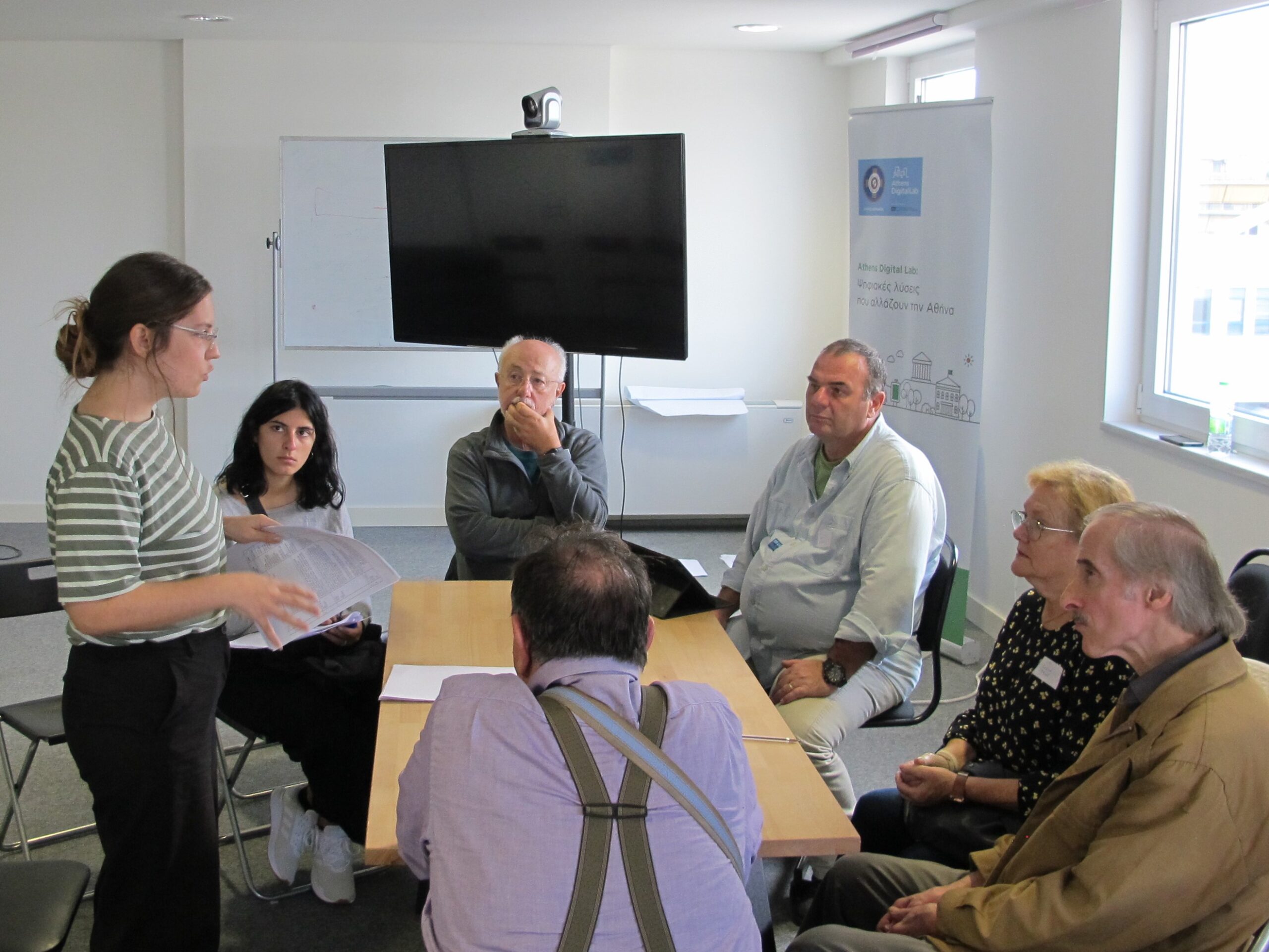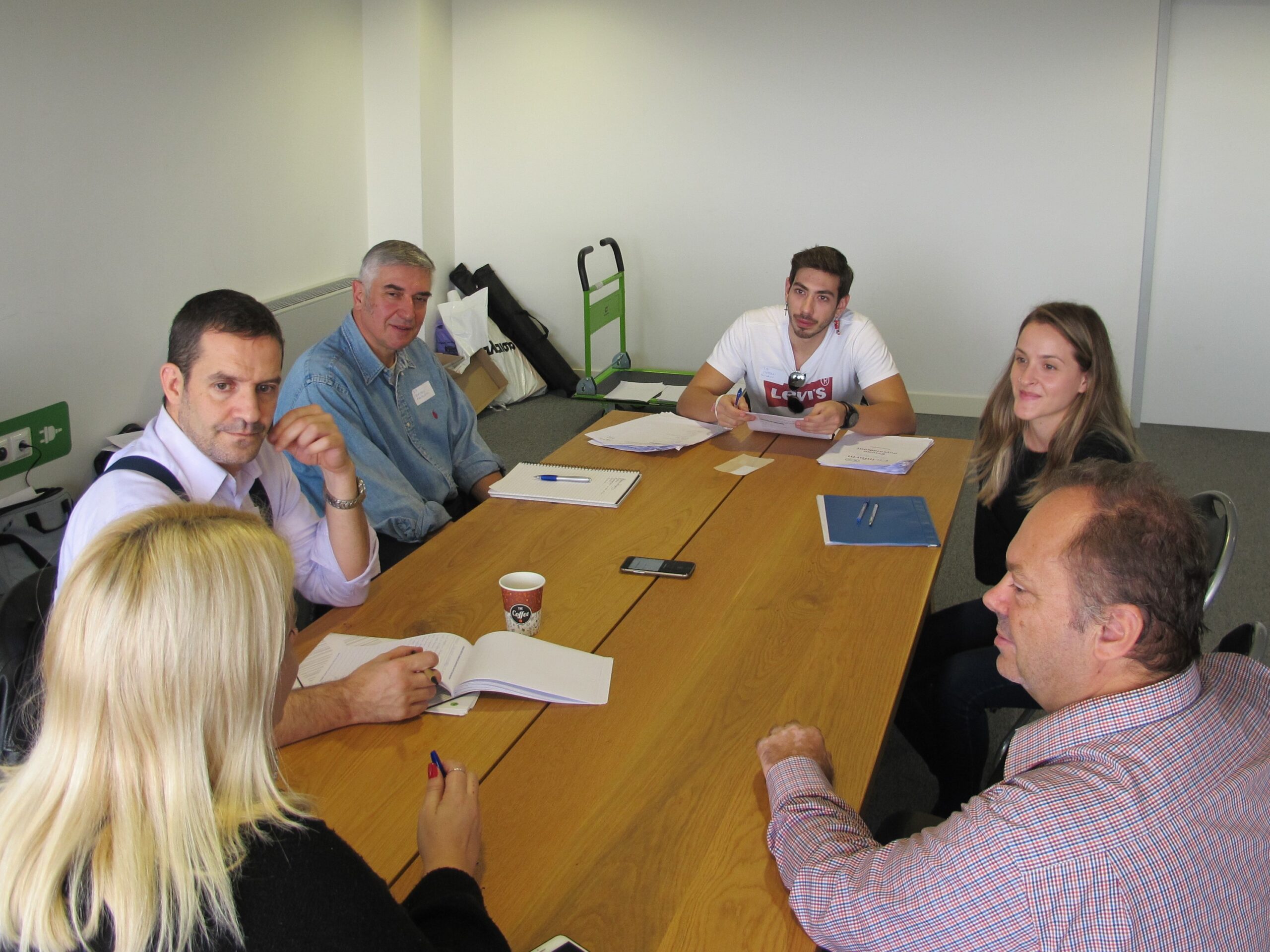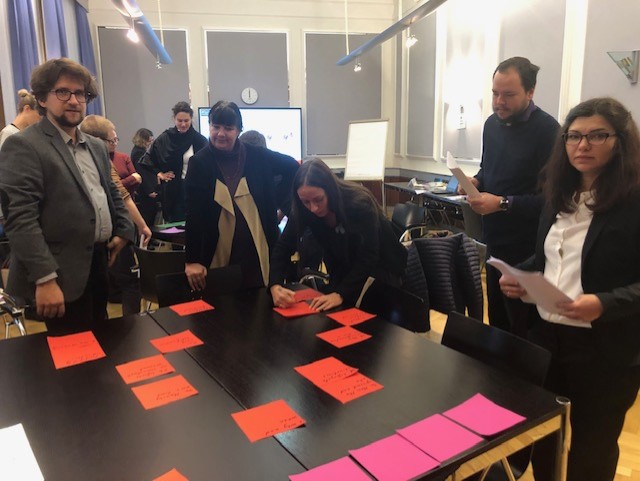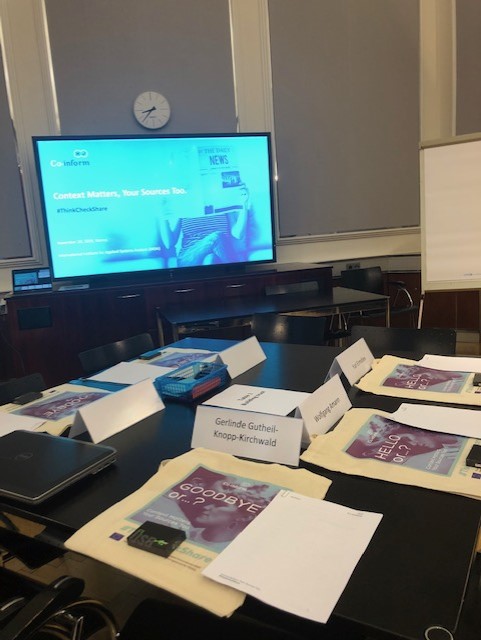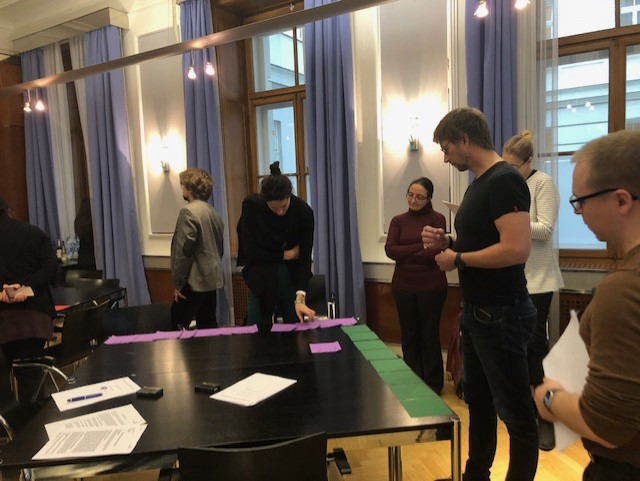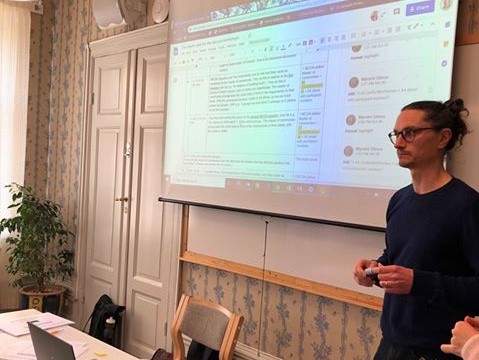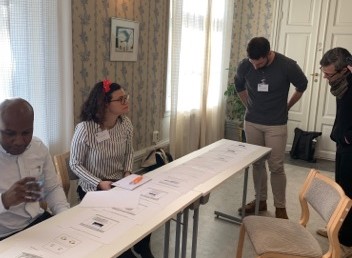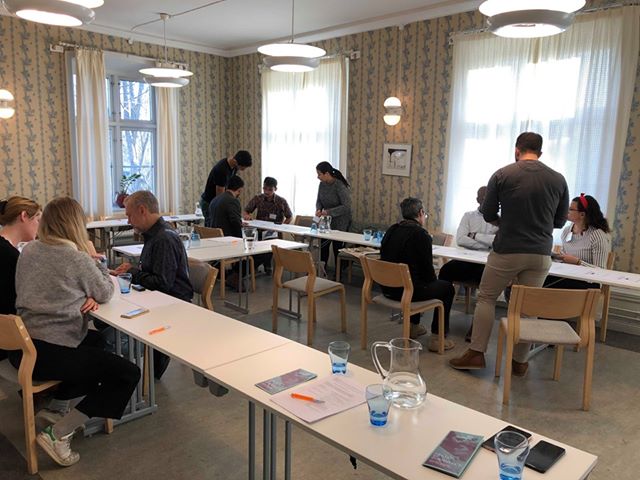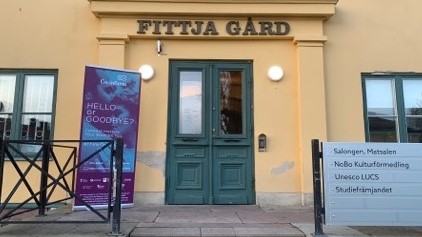Blog
Co-Inform Completes the Second Round of Co-Creation Workshops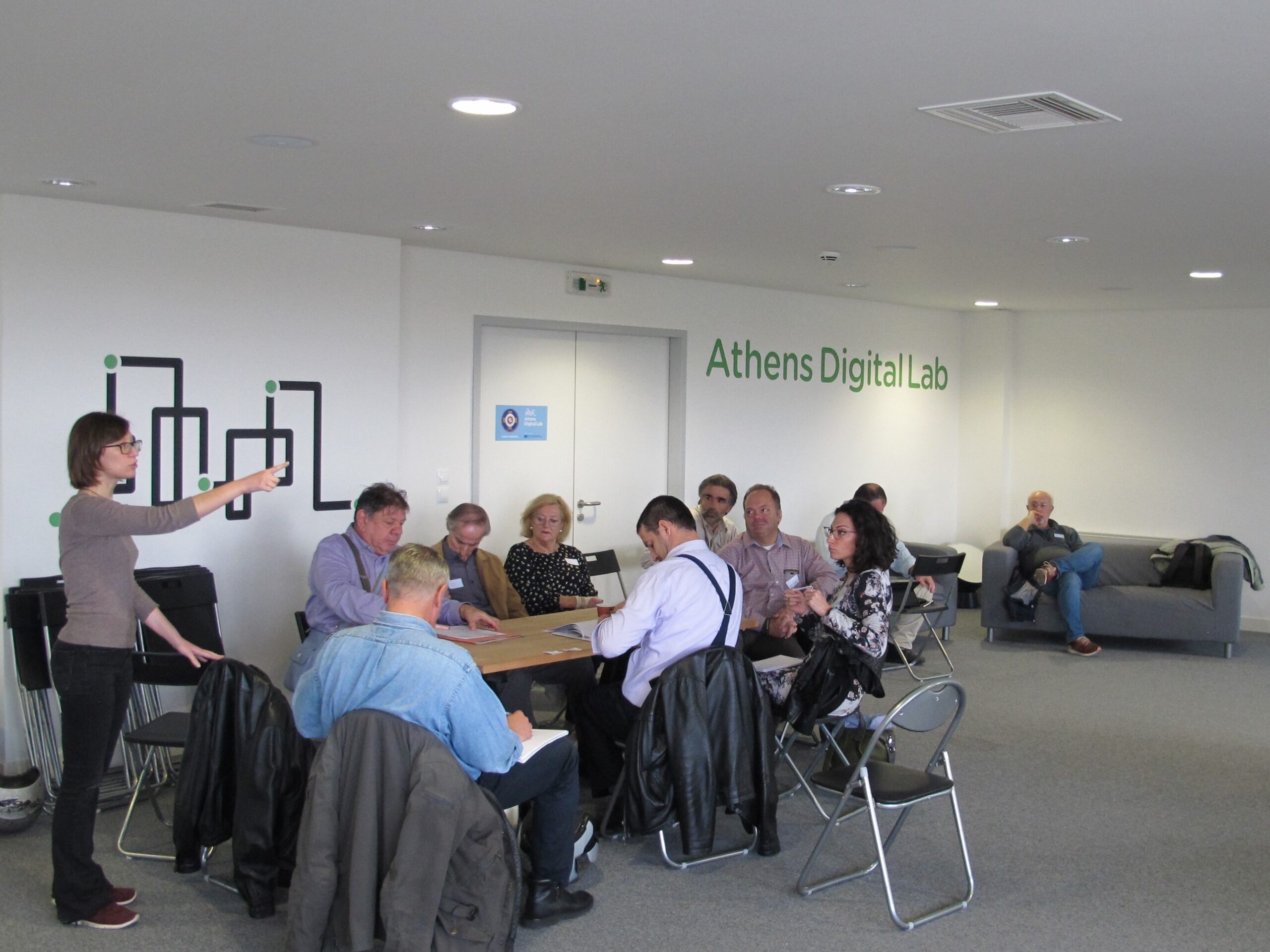
Co-Inform has completed its second round of workshops. Citizens, journalists, and policymakers gathered once again in Botkyrka, Sweden (on 4th November), Vienna (on 20th November) and Athens (on 21st November) to allow the project to move one step forward and collect their feedback on some existing fact-checking tools. These insights will be useful for the Co-Inform Consortium to develop fact-checking tools that fit the user’s needs: tools with the functionalities that the already existing tools are currently missing.
One of the tools that were presented was Misinfo.me, a Twitter-based fact-checking tool developed by the Consortium, which provides users with information on the trustworthiness of Twitter profiles.
Being Co-Inform based on the principle of co-creation, at the second workshops participants were asked to define what their dream tool would look like, and what the Consortium could do to make its tools accessible, informative, trustworthy, and easy to use.
Focus groups were organized to facilitate the discussion and allow the pilot countries to collect data based on which the Co-Inform team will start developing prototypes of the tools that will then be tested in the third and final round of workshops.
The participants had to evaluate and rank some potential functionalities of the Co-Inform tools. They were presented with wireframes of some specific functionalities to illustrate what the tool could potentially do, how it would look like, which type of information it could show, and how it would allow the users to flag misinformation. The participants ranked and discussed the functionalities, providing some examples of their potential application in their everyday social media users’ activity.
These insights will be useful for the Co-Inform Consortium to improve Misinfo.me and create other tools that can be used on different social media platforms to help the users navigate through the claims, facts, and opinions they encounter every day. Furthermore, the results will also be analyzed by the team of Co-Inform Consortium’s social scientists working on scientific articles related to the topic of misinformation.
Discussions at the workshops also questioned the effectiveness of these solutions. Censorship of content was mentioned as a potential solution, but one that poses serious risks to freedom of expression.
Exposing the users to misinformation, however, seems to be a good way to train them to differentiate between accurate and credible content and misinformation, and to help them develop critical thinking.
Subscribe to our newsletter
Get our latest project updates, news and events announcements first!

Co-inform project is co-funded by Horizon 2020 – the Framework Programme for Research and Innovation (2014-2020)
H2020-SC6-CO-CREATION-2016-2017 (CO-CREATION FOR GROWTH AND INCLUSION)
Type of action: RIA (Research and Innovation action)
Proposal number: 770302

